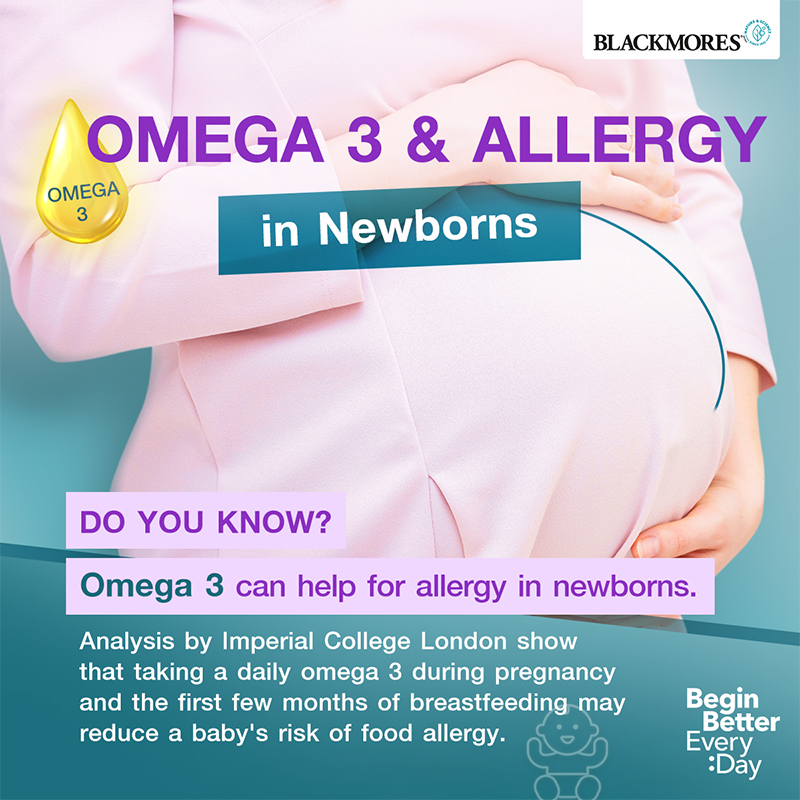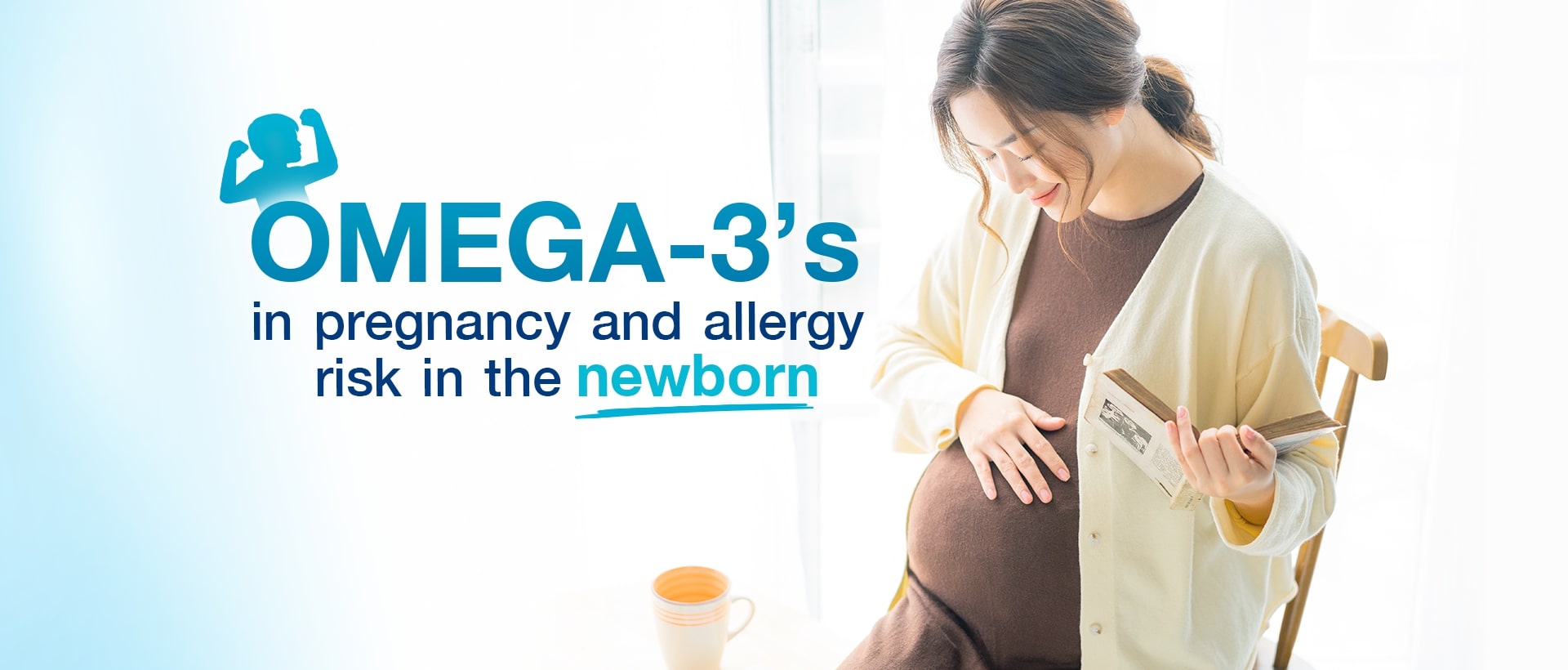Omega-3 supplementation in pregnancy is often recommended for the developing foetus ’ brain and nervous system. Recent research also shows an allergy-preventing effect. Naturopath Stephanie Hamilton explains.
Allergic disease in Australia and other industrialised countries has seen a dramatic increase over the last 30 years, with at least 20% of the population estimated to suffer from some sort of allergy. Researchers say this rate of increase is too rapid for it to be due to genetic changes, and our environment and diet may have contributed to this rise.
Essential fatty acids, especially omega-3 fatty acids, are well known for their health benefits. When diets are high in omega-3’s, inflammation and the immune system are moderated. Omega-3’s are needed for sperm health, in pregnancy they are needed for foetal brain and nervous system development, and in breastfeeding they are needed for the continual nourishment of the brain, cognitive function and for visual acuity.
A recent study has looked at the immune-modulating benefits of fish oil taken by pregnant mothers. A total of 123 pregnant women were randomly assigned into one of two groups. The first continued with their normal diet which was low in oily fish, and the second group was asked to consume two portions of salmon per week. Umbilical cord data was collected and the results showed certain immune factors were lower in the salmon group including interleukins 2,4,5, and 10, when exposed to an immune stimulant.
Another Australian randomised double-blind, placebo controlled clinical trial, showed a lower incidence of atopic eczema and egg allergies in children whose mothers supplemented with fish oil during pregnancy. The women in the treatment group were asked to take three 500 mg capsules of fish oil concentrate each day from 21 weeks gestation until the birth of their baby. Each capsule provided 367 mg of DHA and 33 mg of EPA.
Omega-3‘s can be taken throughout pregnancy safely, but if you are getting your omega-3 fatty acids from fresh fish, be sure to choose wisely as many species of fish contain contaminants and heavy metals. Eating smaller, wild fish such as sardines and anchovies are best as they do not carry as many contaminants as larger fish. You might also like to check out this link from Food Standards Australia New Zealand (FSANZ) for more information:
http://www.foodstandards.gov.au/consumerinformation/mercuryinfish.cfm
How much omega 3 do you need in pregnancy?
According to the World Health Organisation, pregnant women are advised to take at least 2.6 grams of omega-3 fatty acids, incorporating 100-300 mg of DHA daily to meet the needs of the growing baby.
Are fish oil supplements in Australia tested for contaminants?
The governing body for medicines and supplements within Australia, the Therapeutic Goods Administration (TGA), has a compositional guideline which state that fish oil should contain no more that 0.5 ppm (parts per million) of mercury. You may like to visit the following website which lists the allowable and safe limits of contaminants in fish oil supplements in Australia http://www.tga.gov.au/industry/cm-cg-fish-oil-natural.htm




















































